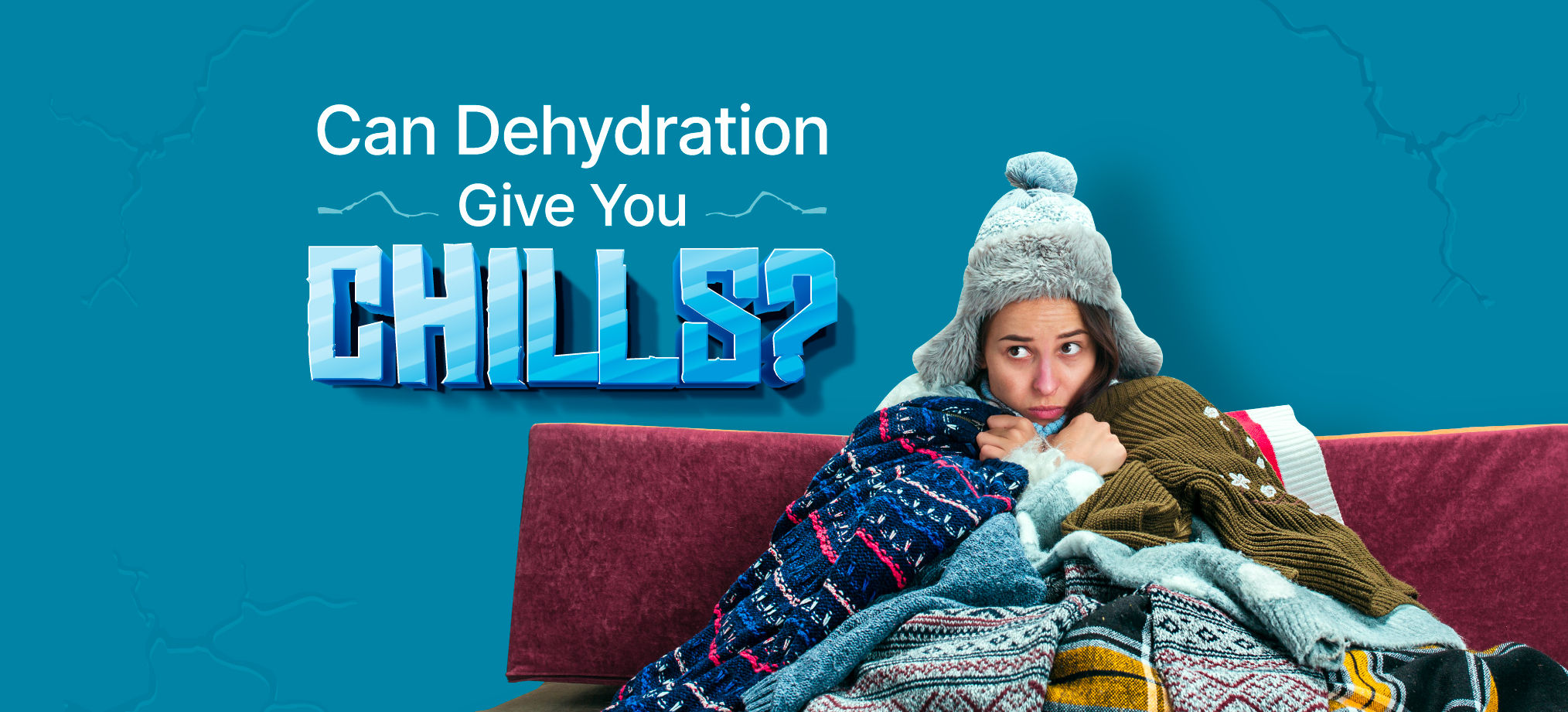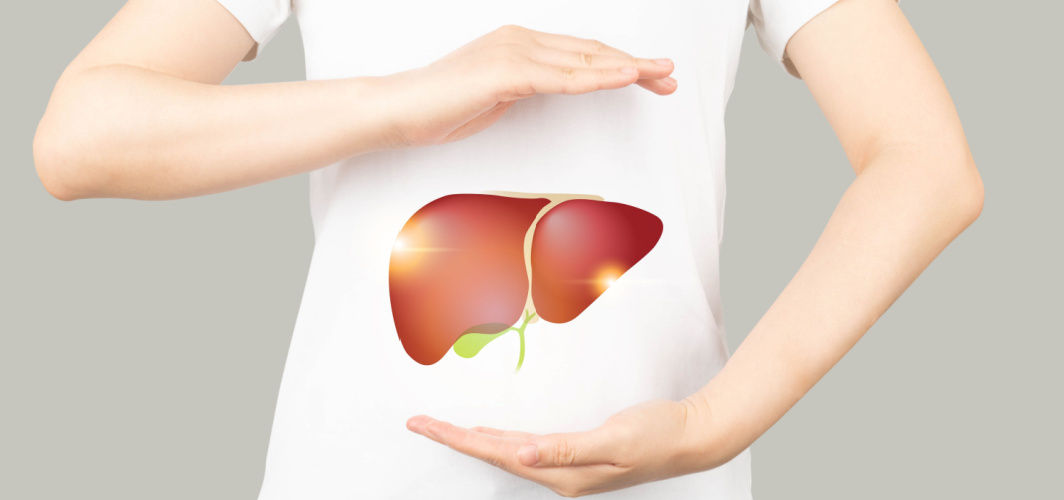General Health
Chills Without Fever: What Causes Them and What to Do?
5 min read
By Apollo 24|7, Published on - 31 January 2023, Updated on - 07 July 2023
Share this article
0
1 like

Chills, commonly known as shivering or shaking, are a peculiar sensation of feeling cold without necessarily being in a cold environment. While they typically occur with fever and signal a drop in body temperature, at times, they can also occur without it. So what do they mean then and what to do next?
6 Causes Of Chills Without Fever
Read on as we discuss the 6 most common causes for chills without fever and some effective first aid and home remedies:
1. Cold Environment
Let's start with the basics. If you are shivering without fever, check for the surrounding environment. Are you dressed for the weather? Are you covered aptly? Are your clothes wet?
In either of these conditions, your body heat can evaporate quickly, leaving you extra cold.
If not covered in time, you could also develop hypothermia, a potentially life-threatening condition.
To know the underlying cause of your fever, Book Apollo's Fever Test
Remedy: If drenched, quickly change into dry clothes and layer according to the weather. Find a good heat source to warm up your body, and alternatively, warm your hands, feet, and mouth. You can also try a warm drink for quick relief. Example: Ginger tea, hot coffee, or just plain hot water.
2. Anaemia
If you have pale skin, feel dizzy and breathless, or have been suffering from a constant sense of fatigue or irregular heartbeats, check for anaemia. This could be one of the reasons why you are having chills without a fever.
Anaemia, or low haemoglobin is the lack of enough healthy red blood cells to carry adequate oxygen to your body's tissues. It can be caused by many reasons, including an iron shortage, vitamin insufficiency, chronic disorders, or heavy menstrual bleeding.
Note: Anemia is a serious medical condition that demands immediate medical attention. The treatment varies according to the exact cause. Therefore, unless you are already under a doctor's prescription, do not take any OTC medication or home remedies. Consult the doctor as soon as possible.
3. Infections
Infection is another prominent factor. In such a case, your body would mark either one or multiple of the following:
- Respiratory Illnesses: Pneumonia, bronchitis, or the common cold.
- Urinary Tract Infections: Cystitis and pyelonephritis.
- Gastrointestinal Diseases: Food poisoning or a stomach virus.
- Skin Infection: Skin or soft tissue infections, such as cellulitis or abscesses.
HIV: may cause chills without fever as a symptom of advanced infection.
Note: Infections are best treated only by an authorised doctor. OTC medications or home remedies can do more harm than good. Therefore, consult the doctor as soon as possible to avoid any unwarranted risks.
4. Dehydration
If you have dry lips, weariness, or have been feeling dizzy, most probably your chills are a result of dehydration. This happens when the body lacks sufficient fluids to operate normally. A few of the reasons causing this include:
- Drinking Insufficient Fluids: Drinking insufficient fluids, particularly in hot weather or during any high-tension physical activity, can contribute to dehydration.
- Certain Illnesses: Diarrhoea or vomiting, can cause the body to lose fluids faster than they can be restored, resulting in dehydration.
- Certain Medicines: Including diuretics and laxatives might raise the risk of dehydration by causing the body to lose fluids.
- Remedy: Seat yourself in a comfortable position and see that the room is well-ventilated. Thereafter, slowly consume ORS or Electrolyte water sip by sip and rest adequately.
Note that when the body dehydrates, it not only loses water but also the necessary salts and sugars. Therefore, ORS or electrolyte water works better for rehydration than plain water, tea, or coffee, owing to its ideal ratio of water, salt, and sugar.
If your condition does not improve within 2 hours, consult your doctor right away. You may need IV fluids.
5. Stress or Anxiety
Stress is another of the most prominent reasons for having chills without a fever, especially if you experience symptoms like rapid breathing, muscle tension, or problems concentrating. A variety of things can cause stress and anxiety, including
- Work: Deadlines, job security, or overworking with coworkers can all contribute to work-related stress or anxiety.
- Relationships: Disputes or miscommunications with friends, family, or partners can produce stress or worry.
- Financial Problems: Worries about paying bills, saving money, or reaching financial goals can all add to stress or anxiety about money.
- Life Happenings: A natural disaster, a bad meeting, or a big change in your life can all cause stress or worry.
Remedy: Exercise, deep breathing, talking positively to yourself, and other similar techniques can all help you manage your stress. If you feel like you need more guidance, consulting a professional counsellor is a good next step.
6. Medications
Certain medicines or their overdose can elicit chills without fever as a side effect which includes:
- Corticosteroids: Medicines to treat inflammation.
- Beta Blockers: Medicines to treat high blood pressure.
- Antipsychotics: Medicines to treat mental health issues like bipolar disorder or schizophrenia.
- Antibiotics: Medicines to treat bacterial infections.
Remedy: In such a scenario, do not rely on home remedies. Consult a doctor immediately.
Takeaway | When to See a Doctor?
Chills are a typical symptom that can be caused by a variety of factors as given above, but it is critical to monitor other symptoms as well. Consult a general physician if you experience persistent or severe chills without fever or other symptoms, such as
- Temperature above 40 °C
- Diarrhoea
- Chest pain
- Extreme fatigue
- Severe abdominal pain
- Wheezing
- Cough
- Persistent headache
Following a diagnosis of your symptoms, the GP can assist in discovering the underlying cause and recommending appropriate treatment options. See that you stick to your doctor’s advice and prevent self-medication.
Medically reviewed by Dr Sonia Bhatt
General Health
Leave Comment
Recommended for you

General Health
Can Vitamin B12 Supplements Boost Energy?
Discover how Vitamin B12 supplements enhance energy levels and invigorate vitality. Unleash the power of B12 for a vibrant life.

General Health
Simple Carbohydrates vs. Complex Carbohydrates: Knowing the Difference
Explore the contrast between simple and complex carbohydrates. Enhance your nutritional awareness for a balanced diet and better health.

General Health
5 Things You Can Do To Keep Your Liver Healthy
You can keep your liver fit by taking a healthy diet, avoiding harmful processed foods, doing regular exercise, drinking enough water and avoiding exposure to toxic chemicals.
Subscribe
Sign up for our free Health Library Daily Newsletter
Get doctor-approved health tips, news, and more.
Visual Stories

Could There Be More to Your Snore?
Tap to continue exploring
Recommended for you

General Health
Can Vitamin B12 Supplements Boost Energy?
Discover how Vitamin B12 supplements enhance energy levels and invigorate vitality. Unleash the power of B12 for a vibrant life.

General Health
Simple Carbohydrates vs. Complex Carbohydrates: Knowing the Difference
Explore the contrast between simple and complex carbohydrates. Enhance your nutritional awareness for a balanced diet and better health.

General Health
5 Things You Can Do To Keep Your Liver Healthy
You can keep your liver fit by taking a healthy diet, avoiding harmful processed foods, doing regular exercise, drinking enough water and avoiding exposure to toxic chemicals.